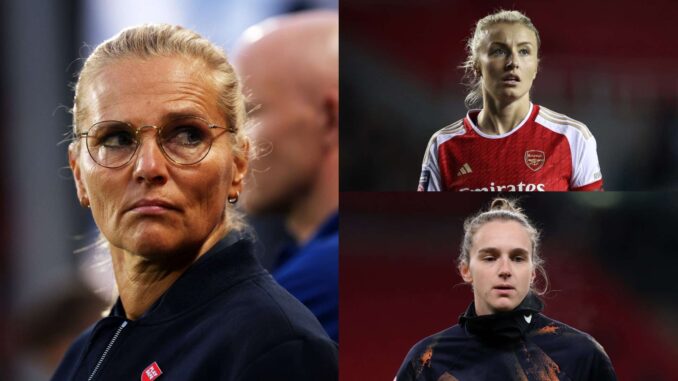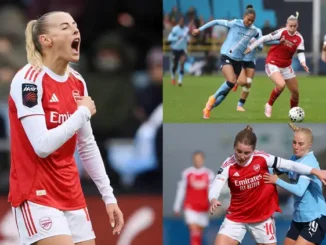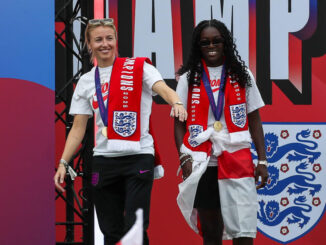
1. The coach’s warning: Sarina Wiegman
England’s head coach Wiegman has been blunt. She’s raised alarm over how congested the calendar has become, pointing out the lack of guaranteed rest for her players. She noted:
> “We have a June window. Then after that, there’s the Olympics, which is not for us. Then at the beginning of September, there’s [club] Champions League again. What the players ask all the time is: ‘Where is the rest for us?’”
She’s echoed frustrations over poor pitch standards, sub-optimal scheduling and a sense that players are being over-worked.
In short: yes — “It’s a disgrace” is maybe strong wording, but she is absolutely right to say the structure is flawed.
2. The players speak: Leah Williamson & Vivianne Miedema
Williamson, the England captain, made a powerful diagnosis:
> “We’re not bred for this. Nowadays we get to October and girls are saying, ‘I’m tired’ because you’re carrying so much from the previous season.”
She called the schedule “unsustainable”.
Likewise, Miedema, one of the leading figures in the women’s game, put the finger squarely on workload, injury risk and a lack of rest. She said:
“For FIFA, the biggest thing is, look at your calendar. We’ve got a World Cup that is starting mid-July, ending mid-August. … Where are the players going to get their rest?”
Further: she pointed out that players are being expected to perform at very high levels without adequate physical or mental recovery.
These aren’t fringe complaints—they’re coming from the people who live this every day.
3. Why this matters – and why governing bodies must listen
Here’s the convergence of issues:
When the calendar is jam-packed, players may not get proper rest between club and international duties. That elevates risk of injuries — especially serious ones like ACL tears in the women’s game.
Overloading players without mandated rest undermines their ability to perform and thrive. As Williamson warned: with players wiped out, you might not even have the star-power to attract crowds or grow the game.
On top of that, clubs and national federations find themselves squeezed: domestic leagues, continental tournaments, international windows all competing for calendar space. The result is fewer windows, but no fewer matches in many cases.
In terms of growth: yes, more games, more competitions, more visibility are good. But growth without a sustainable structure risks burning out players (and fans) and undermining long-term health of the sport.
4. What to demand / what needs to change
If I were advising FIFA and UEFA (and member federations), here are key fixes:
Mandatory rest periods: build in guaranteed pauses for players after major tournaments and end-of-season. Williamson’s plea: four weeks off at season’s end, six weeks pre-season.
Reduce excessive windows (or at least compress more sensibly) so that clubs and players aren’t pulled in 10 different directions.
Better coordination between club, continental, and international calendars so players aren’t playing non-stop from February to December.
Medical safety standards / load-monitoring must be strengthened: if you’re asking players to play more, you must protect them with infrastructure, staffing, recovery strategies. Miedema pointed this out.
Quality over quantity: It may be better to have slightly fewer matches, but with higher standards, than to flood the calendar with games that devalue performance, risk injury and fatigue players.
5. Conclusion
So yes — when deemed through this lens, Sarina Wiegman’s statement that “It’s a disgrace” is a bit sensational perhaps, but the core message is absolutely valid. The calendar in the women’s game is at risk of undermining the very players who are driving its growth. The voices of Leah Williamson, Vivianne Miedema and other players must be heard by FIFA, UEFA and national federations now.
If women’s football is to continue its upward trajectory—to gain fans, commercial value, and equality with the men’s game—it needs a sustainable, sensible, player-centred calendar. Otherwise we risk the growth stalling because the athletes at the centre simply cannot keep up.



Be the first to comment